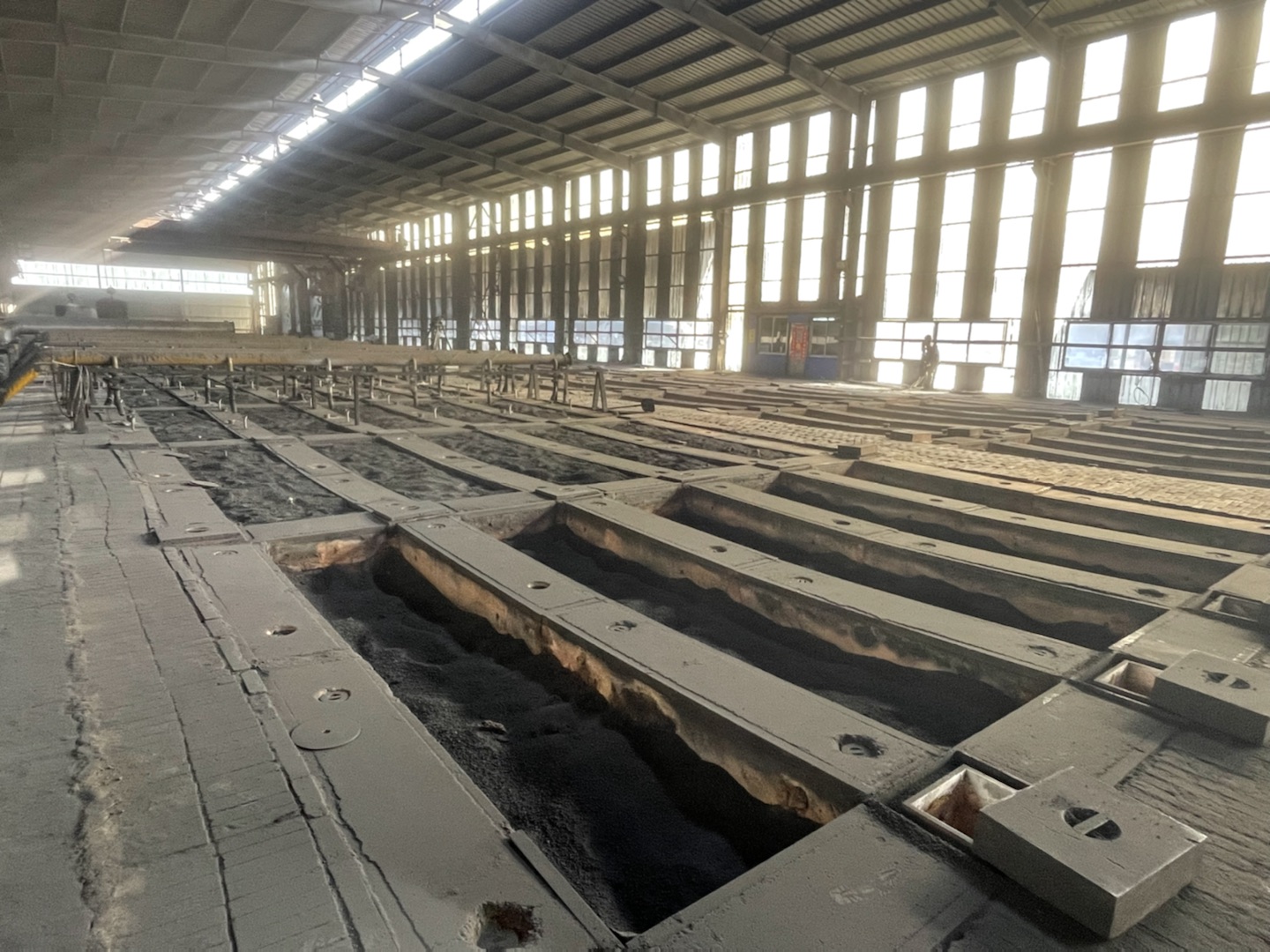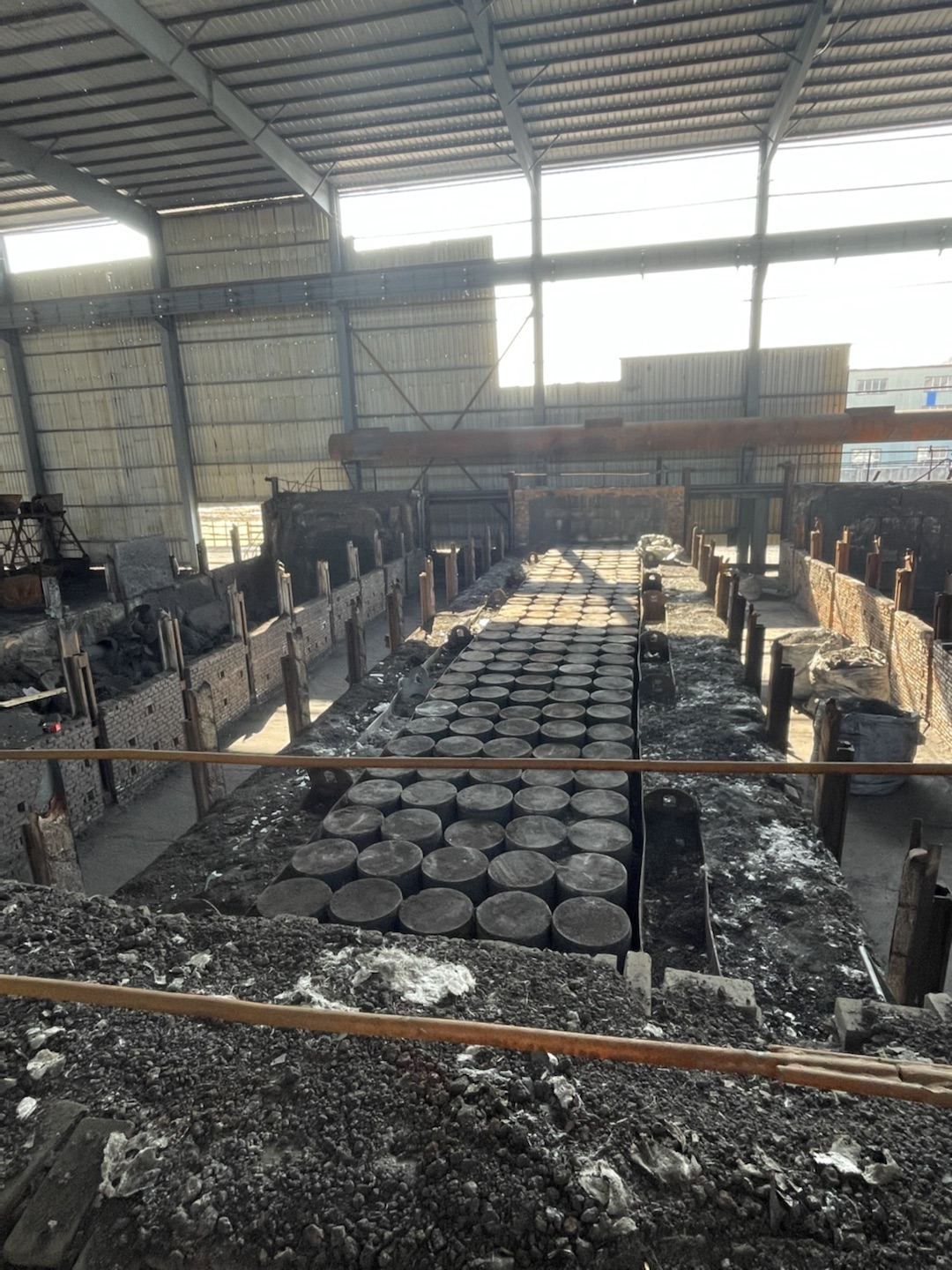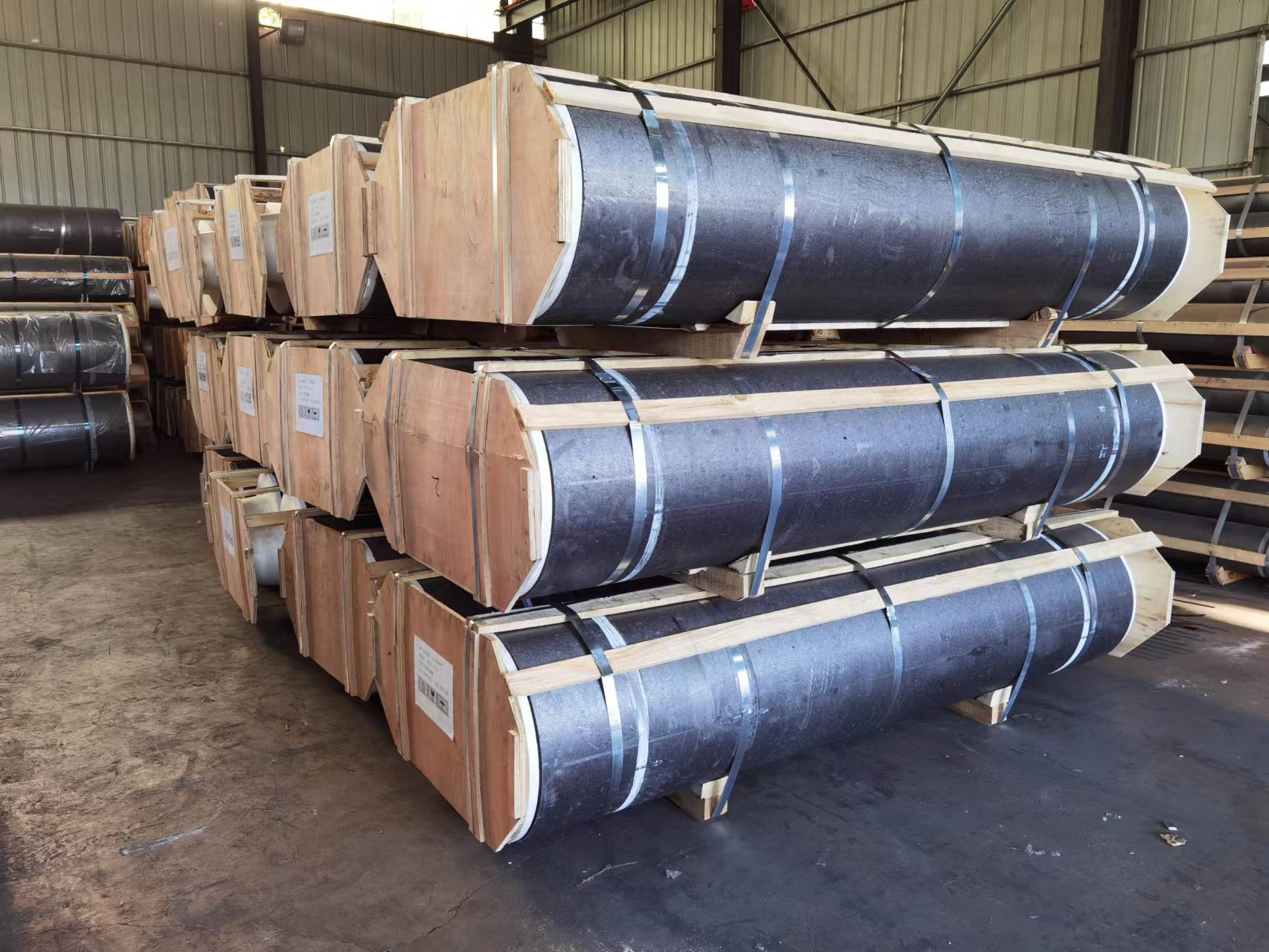Production Process
1) Calcination
The carbonaceous raw material is heat-treated at high temperature, the water and volatile matter contained in it are discharged, and the production process of improving the physical and chemical properties of the raw material is called calcination. Generally, the carbonaceous raw material is calcined with gas and its own volatile matter as the heat source, and the maximum temperature is 1250-1350°C.


2) kneading
The process of kneading quantitative carbonaceous granules and powders of various particle sizes and quantitative binders at a certain temperature to form a plastic paste is called kneading.
3) Pressing
The forming of carbon materials refers to the process in which the kneaded carbon paste is plastically deformed under the external force applied by the forming equipment, and finally forms a green body (or green product) with a certain shape, size, density and strength.
4) Roasting
The pressed raw product is heated at a certain heating rate in the protective medium in the heating furnace under the condition of isolating the air.
5) Graphitization
The roasted product is placed in the protective medium in the graphitization furnace and heated to a high temperature, so that the hexagonal carbon atom planar grid changes from the disordered overlapping of the two-dimensional space to the ordered overlapping of the three-dimensional space, and high-temperature heat treatment with a graphite structure.
6)Reshape the product and process it into a specified geometric shape.

